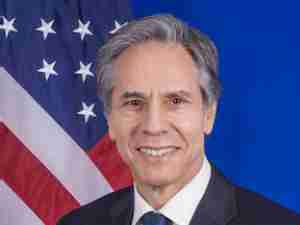EU, Japan Leaders Hail Free-Trade Pact in Riposte to Trump
By: Jonathan Stearns | Jul 06 2017 at 06:51 AM | International Trade
European Union and Japanese leaders endorsed a preliminary free-trade agreement as they seek to counter Donald Trump’s protectionist stance during his second trip to Europe as U.S. president.
EU President Donald Tusk, European Commission chief Jean-Claude Juncker and Japanese Prime Minister Shinzo Abe gave their blessing to an accord that would eliminate 99 percent of tariffs between the two partners, expand markets for services and public procurement, and bolster regulatory cooperation.
The political green light on Thursday in Brussels came a day after negotiators for both sides reached a breakthrough over food and car exports, which had been sticking points since talks started in 2013. The commercial deal is the EU’s biggest to date, surpassing an accord with South Korea, and marks the 28-nation bloc’s second with a fellow member of the Group of Seven leading industrialized nations following a recent pact with Canada.
“We in the European Union firmly believe in the political purpose of a world which is built on openness, cooperation and trade,” Tusk told reporters in the Belgian capital during an EU-Japan summit. “The world really doesn’t need to go 100 years back in time. Quite the opposite.”
Europe and Asia are stepping up cooperation and championing open markets as unease mounts over Trump’s “America First” policy, which has shaken the multilateral trade order. Since taking office in January, Trump has pulled the U.S. out of a new trans-Pacific commercial accord, frozen talks on a deal with the EU, ordered the renegotiation of a longstanding pact with Canada and Mexico, and threatened to curb American imports of steel.
The EU-Japan deal bolsters the free-trade credentials of Abe and is a political triumph for German Chancellor Angela Merkel as she prepares to host the Group of 20 summit in Hamburg. Trump is due to arrive in the northern German port city for the July 7-8 gathering after visiting Poland.
“Japan and the EU will hoist the flag of free trade high amidst protectionist trends,” Abe said while standing alongside Tusk and Juncker. “This is an achievement we should be proud of, which also sends a strong message to the world.”
Abe, whose political clout at home has been weakened by scandals and a heavy defeat in a Tokyo election, has faced calls within his own party to maintain protection for Japanese cheese producers. Merkel has clashed openly with Trump over trade after he labeled Germany “very bad” for its export strength, including shipments of cars to the U.S.
The new pact also signals a determination in European capitals from Helsinki to Lisbon to prevent the U.K.’s planned exit from the EU from undermining the bloc’s global footprint. The two-year Brexit process began in March.
“The EU is more and more engaged globally,” Tusk said.
The breakthrough in the talks between Brussels and Tokyo came after the EU agreed to phase out its 10 percent import duty on cars from Japan and the Japanese government offered expanded access for European farm goods including cheese. The EU is the world’s largest cheese exporter, while Japan’s automakers have sought a level playing field in Europe with counterparts from South Korea.
Europe plans to scrap the levy on Japanese cars after seven years and Japan intends to end duties of around 30 percent on European hard cheese over 15 years, according to an EU official. Japan also intends to offer duty-free access for European soft and fresh cheese up to amounts equal to current trade levels, with the possibility for the import quotas to be increased, the official said on the condition of anonymity because the details of the draft accord have yet to be released.
Both sides will continue talks into the autumn and aim to produce a legal text by year-end. The goal is for the agreement to take effect provisionally in “early” 2019, said Juncker, whose commission, as the EU’s executive arm, negotiates on behalf of the bloc.
Before the free-trade deal could take provisional effect, it would need to be approved in Europe by the European Parliament and EU governments.








